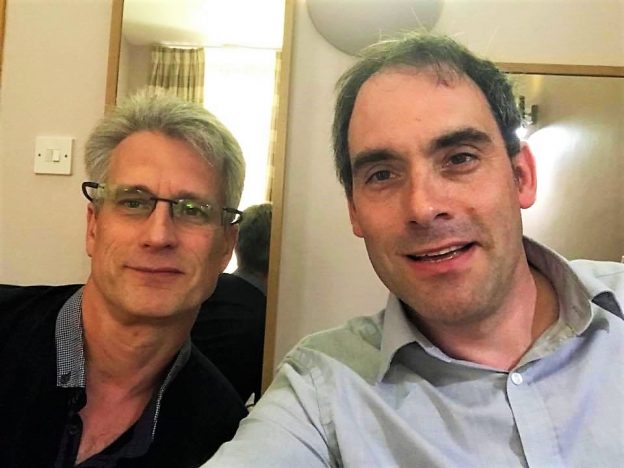The latest episode of podcast series on ‘Nostalgia’, hosted by Dr Chris Deacy, Reader in Theology and Religious Studies in the Department of Religious Studies, has just been released.
In this week’s interview, Chris interviews Andrew Hass, Reader in Religious Studies at the University of Stirling. Originally from Canada, Andrew discusses the concepts of home and belongingness and how we identify ourselves in a global context (e.g. ‘a citizen of the world’), prompting questions of nostalgia for one’s homeland. In Andrew’s case, Scotland is a place that intellectually formed him.
In the interview, Andrew also identifies the extent to which popular music evokes memories, such that we are immediately drawn back to a certain era through the simple listening to a song, and how it can bind people together in a way few other media are able to do. Jazz was a particularly formative part of his young adulthood, followed by progressive rock and then classical music. Andrew’s latest project is centred on the relationship between music, spirituality and religion and culture.
Andrew introduces the concept of ‘superficial nostalgia’ and outlines how, when there’s chaos around, the calming effect of music can be requisite to one’s sanity. We learn why Andrew grew up listening to so much Joni Mitchell in whose music he has found a lyrical and poetic depth that is equivalent to the works of the best craftsmen.
The interview then explores how literature was the pathway into his present discipline and the intersections between English and theology. Discussing crossing disciplines, Andrew outlines his hope that dialogue with musicologists can open up new spaces for practitioners in both subjects. He discusses how those who work in Religious Studies might be said to be on a particular kind of journey that necessarily disrupts the kinds of presuppositions and inherited perspectives that were part of our early development. Andrew tells us why belief is irreversible and why he looks back on his early years with a sense of gratitude (as distinct from nostalgia) and he explains why he wouldn’t want to go back to that period of his life.
The podcast is available here.
